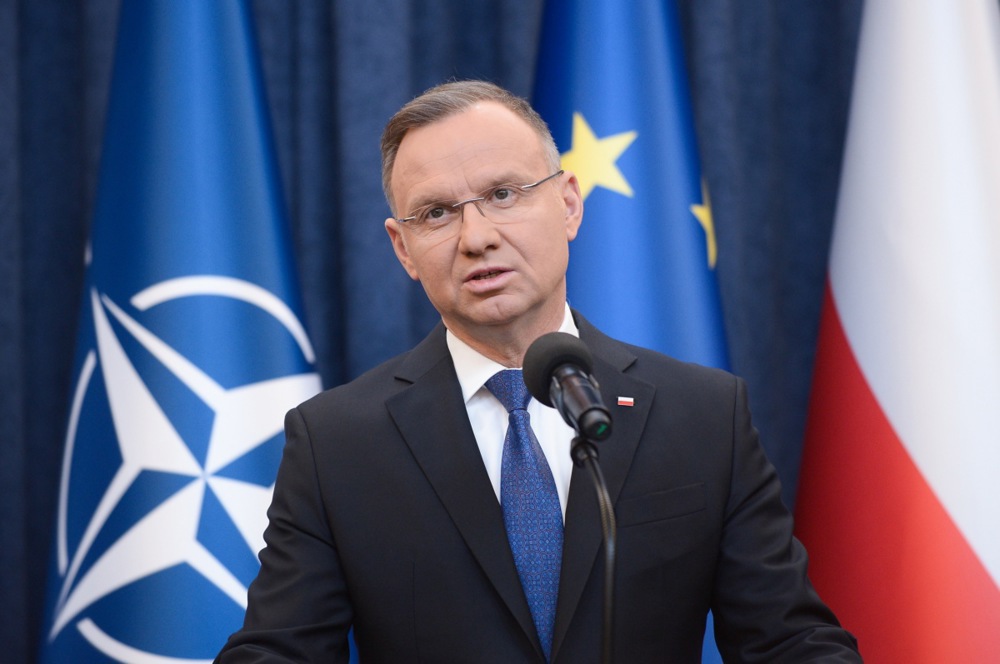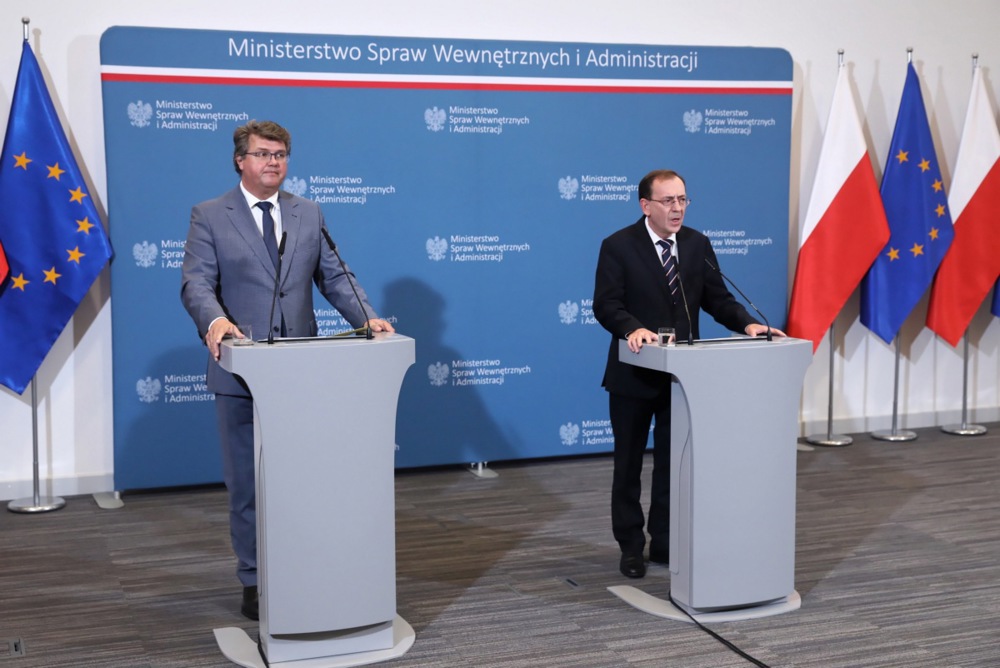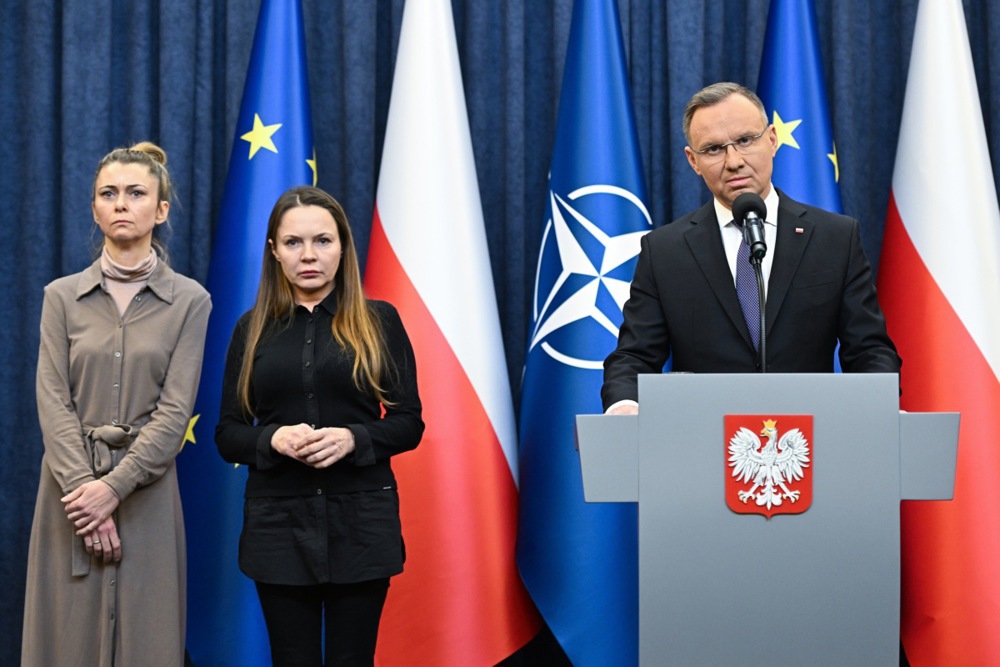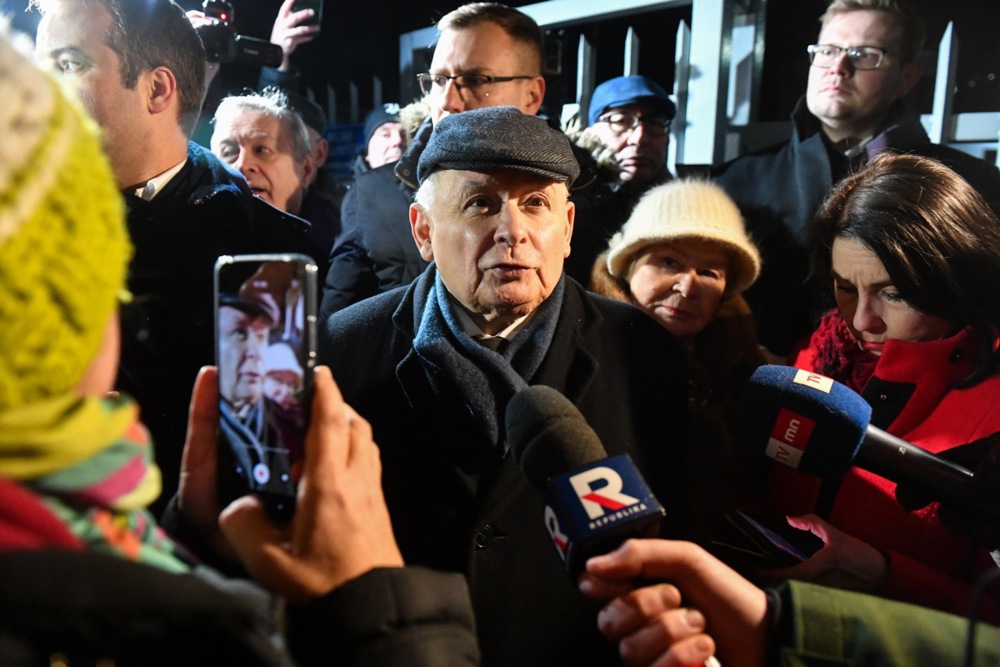Polish President Andrzej Duda has issued pardons for former ministers Mariusz Kamiński and Maciej Wąsik whohave been on hunger strike in protest at their incarceration.
The move announced on January 23 marked a change of heart by Duda, who had insisted his previous pardons issued in 2015 were still in force.
That was despite the fact they were challenged last year by a chamber of the Supreme Court, leading to further legal proceedings against Kamiński and Wąsik. Those resulted in the pair starting two-year prison terms on January 10 for abuse of power regarding a “sting” operation in 2007 against officials in the ministry of agriculture.
Duda had maintained that the 2015 pardons were still in force as the Polish Constitution does not specify that the full legal process must be completed before he can grant such to individuals.
He changed his position given the two men were imprisoned and on hunger strike, leading him to to issue the fresh pardons to ensure the inmates were freed.
Still, Duda did appear with the mens’ wives at the Presidential Palace to declare that he remained convinced his original pardons were valid. In doing so he cited rulings by the Constitutional Tribunal, or court, that rejected the Supreme Court’s interpretation of the limitations of the President’s “power of mercy”.
He also reiterated his belief that the original convictions were “unjust” and praised Kamiński and Wąsik for their work in what he called the fight against corruption.
Duda said he believed the two men were treated unfairly by judges hostile Conservative (PiS) politicians and who failed to take into account that individuals pursued by the two men were eventually tried and found guilty of corruption regarding a land deal.
He then announced that the pardon proceedings he initiated two weeks ago had been completed and “the decision regarding an act of pardon has been issued”.
In doing so, Duda called for “the immediate release of the gentlemen, especially Mariusz Kamiński due to his medical condition”; he is diabetic.
Both men were released from prison on the evening of January 23.
Kamiński and Wąsik had been on hunger strike since their incarceration, with Kamiński being taken into hospital on January 22 and his family being officially informed that he would be forced-fed in prison through a nasal tube.
The President’s latest pardon proceedings were launched on January 11, two days after the two politicians had been detained by the police at the Presidential Palace just 24 hours after an arrest warrant had been issued against them by a Warsaw court.
Now freed from jail, the arguments move on to the trickier issue of the mens’ parliamentary status since the Speaker of the House Szymon Hołownia and the parliamentary majority believe that their mandates expired on the day they were convicted.
The justice minister Adam Bodnar repeated that view in an interview on public television TVP but he admitted Duda’s pardon did mean the two men could hold public office again. Therefore they can stand in either the local or European elections due this year.
That interpretation was challenged by senior constitutional lawyer Professor Ryszard Piotrowski, who maintained that Kamiński and Wąsik remained MPs because the “wrong chamber” of the Supreme Court had ruled on the issue and therefore the process of extinguishing their mandates was incomplete.
Two chambers of the Supreme Court have given contradictory interpretations on the matter and it now seems certain there will be another clash between the PiS opposition and the ruling majority over the two politicians’ exclusion from Parliament.





